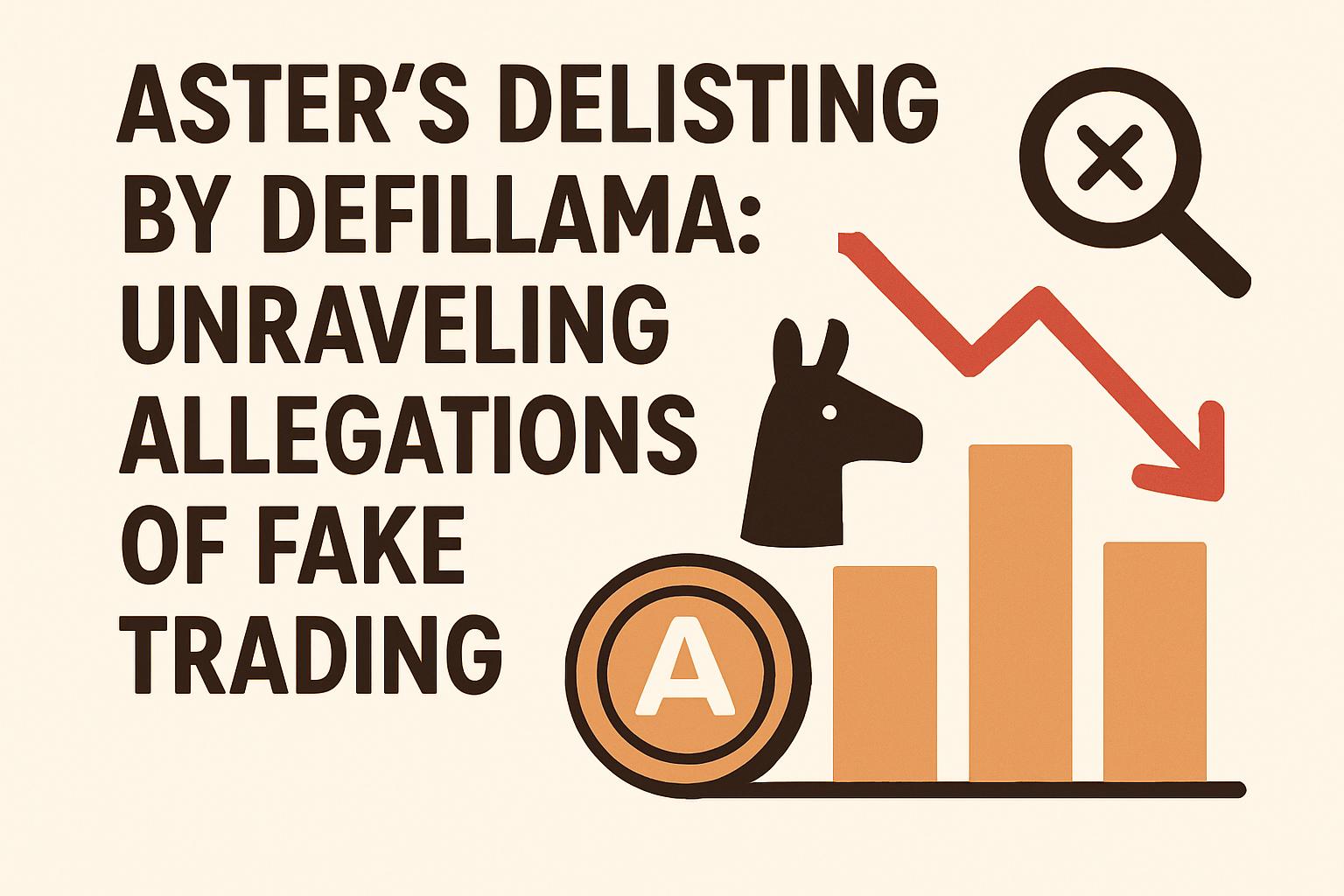The world of decentralized finance, or DeFi, was recently stirred when DefiLlama made the bold move to delist Aster, a popular decentralized perpetual contract exchange, from its data platform. This decision led to a temporary dip in the exchange’s native token, ASTER, which saw a drop of over 10%.
DefiLlama’s Move to Delist Aster Amidst Fake Trading Concerns
0xngmi, the pseudonymous founder of DefiLlama, expressed concerns about Aster’s trading data through a post on X (formerly known as Twitter). The creator highlighted unusual patterns between Aster’s trading volumes and those on Binance, one of the world’s largest cryptocurrency exchanges. Specifically, the founder claimed that Aster’s trading volumes were almost a mirror image of Binance’s perpetual trading volumes.
The crux of the decision to delist lay in the inability of DefiLlama to acquire additional data that could verify or debunk the suspicion of fake trading activities. As part of their commitment to maintaining the integrity and thoroughness of their data, DefiLlama decided it best to remove Aster’s perpetual contract volumes from their platform until further validation could be obtained.
Analyzing Trading Patterns
0xngmi shared several graphical representations that pointed to trading patterns in cryptocurrencies like XRP and ETH. These patterns showed an almost identical trading volume on both Aster and Binance, which stood in stark contrast to natural variations usually seen on other platforms like Hyperliquid.
The concern over Aster’s trading figures points to a crucial issue within the broader cryptocurrency space: the need for transparency and authentic data. The market heavily relies on platforms like DefiLlama to provide trustworthy insights, making the accuracy of their listings incredibly significant.
The Impact on Aster Token
Aster, supported by YZi Labs and often dubbed by enthusiasts as closely aligned with Binance, has generally enjoyed robust trading volumes and notable performance of its ASTER token. In response to DefiLlama’s delisting, ASTER’s value briefly plunged from $2 to approximately $1.78, marking a fall greater than 10%. However, the token demonstrated resilience, rebounding to roughly $1.89 soon after.
This incident underscores the volatile nature of the cryptocurrency market, where perceptions and data integrity can have profound impacts on a token’s valuation. It also demonstrates the swift reaction of market participants to significant news, further emphasizing the importance of real-time and accurate data dissemination.
As always in the world of crypto, vigilance and thorough research remain essential for anyone participating in the market, from casual investors to institutional stakeholders. The situation surrounding Aster and DefiLlama serves as a reminder of the intricacies and challenges faced by those trusting their financial destiny to these decentralized ecosystems.

![[News] Bitcoin at a Turning Point? 10x Research Signals a Bullish Macro Shift Ahead](https://cryptoexplores.com/wp-content/uploads/2025/06/new20250616.jpg)
![[News] Binance Lists $HOME, the Gas-Free, Bridge-Free All-in-One DeFi App](https://cryptoexplores.com/wp-content/uploads/2025/06/news20250617.jpg)